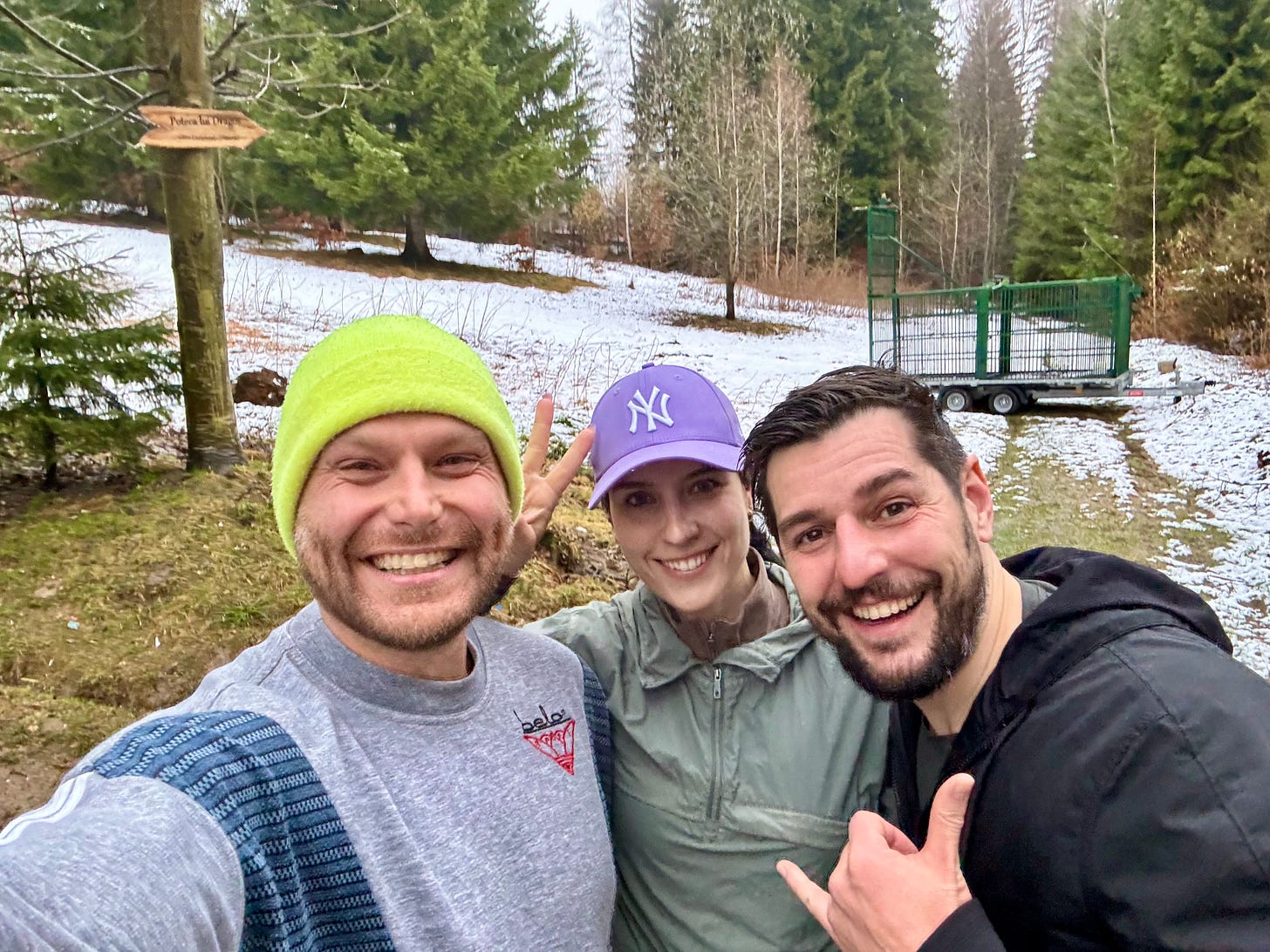Hey friends,
Welcome to the 48th edition of the “Level Up Ladder” newsletter.
This week’s action tip: take some time to figure out if your work stresses you
1/ Some updates from my side
I had a huge achievement this week, passing 3000 followers on LinkedIn.
Even though I have around 17K followers on X (Twitter), I am much prouder of the 3K I have on LinkedIn.
PS: If you don’t follow me there already, click on the photo.
On Twitter, I had a viral post that took me from around 500 followers to more than 10K in one single day! That was amazing.
After 2-3 more like this, I was already at 17K.
But I figured out it was not the audience I wanted.
There is a lot of negativity and maliciousness on Twitter. Not to mention the fact that 90% of the people there want to be solopreneurs. Or freelancers, as I call them.
But I am writing for people who want to grow their careers and become leaders.
To build high-performing teams and to make an impact.
That's why I understood that LinkedIn is my medium of choice, as it's a professional network filled with people like me.
People who want to ascend the career ladder.
Don't get me wrong, I'm not against entrepreneurship or solopreneurship.
Quite the opposite.
But I do think it's not for everyone, and a lot of people will get disappointed very hard, very fast.
Especially since there are a lot of people on these platforms selling dreams.
"Earn $20,000 a month as a ghostwriter.".
"Work as a life coach from a beach in Bali."
"Create your course on needling and make hundreds of thousands of dollars when you launch it."
Again, I'm not saying any of this is possible.
But I have to be realistic in telling you that you have a higher chance of making a good income by working for a company. Not to mention the peace of mind.
I'll talk about that in a bit.
So, I'm very excited to pass the 3000-follower mark. Especially since they are engaging people with whom I can have interesting conversations.
Here's to the next 30000.
On a personal note, I wanted to go snowboarding for the first time in a year.
We spent a few days in a mountain resort here in Romania, but instead of skiing, we ended up running in the rain.
Oh, and we saw a bear (that’s a cage to catch him).
Well, it is what it is.
You can't control everything in your life.
And I am doing a lot of things already, so I'll plan a ski trip next winter.
2/ How stressful is your job?
Even though I am an advocate of corporate life, I know that many jobs are stressful.
And there is good stress—the one that keeps you focused on your most important tasks.
And there is the bad stress—the one that can affect your physical and mental well-being.
How can we manage the second one so we can live more balanced lives?
First, what is work stress?
Work stress is your mind's response to several situations:
you have to do something that doesn't match your knowledge and abilities
the workload is overwhelming and the deadlines are pressing
there is no support from your colleagues or management
your work is dependent on events outside your control
The first thing to do is to acknowledge the symptoms of work stress early on.
It may manifest physically via headaches, lack of sleep, and fatigue.
Or psychologically, through anxiety, a decrease in motivation, and an all-around bad mood.
As you can imagine, chronic stress doesn't stay at the office or during working hours.
It comes home with you.
In the long term, it can cause heart disease, depression, and burnout.
It is affecting your life, your productivity, and your relationships too.
The bad thing is that stress can create a cycle that can be hard to break.
The good news is that you can do it with the right strategies and support.
Here is my blueprint for dealing with stress (yours might be different).
Step 1: Acknowledge it
You can't fix what you don't know.
Take a look in the mirror, talk to your close ones, and they will confirm it.
Step 2: Set boundaries
The long-term effects of stress are more important than your current duties.
Talk to your manager about how you feel. Find solutions.
If they won't support you, go to the HR department.
"It's just how it is, it's a stressful job" is not a good excuse, unless you're the personal bodyguard of the President.
Step 3: Self-care strategies
Regular exercise does wonders for me. It's the perfect time to disconnect and improve your mood.
Unplug from any work communications in your free time.
Food is also very important, as the nutrients will make you feel a lot better.
Try to get more sleep. If your mind is racing, practice meditation and mindfulness.
Step 4: Effective Time Management:
A lot of stress comes from our inability to organize everything that's coming at us every day.
Prioritize your tasks and tackle them one at a time.
Set realistic deadlines, and don't be afraid to say no when you're overwhelmed.
Take regular breaks to rest and recharge.
Step 5: Seek support
The strategies above might not work for you.
I encourage you to seek support.
Talk to people. Your friends and family.
See a therapist.
Step 6: Take a longer break
In the end, your health and well-being are the most important things in your life.
Don't let a boss, a client, or a job ruin them
Consider changing your workplace or taking some time off.
It will make a difference.
Don't ignore stress. It will catch up with you.
Reach out for support, and ultimately contribute to a healthier work environment for everyone.
Be the one who speaks up in your organization.
Remember, managing work stress is not a solo journey.
I will recommend below some resources that can help you manage work stress.
3/ Recommendations for handling with stress
A meditation app
Headspace and Calm are the best meditation apps I’ve used. They both have free trials.
They have different types of guided meditation, including some to help you sleep.
"Make Time: How to Focus on What Matters Every Day" by Jake Knapp and John Zeratsky
This book offers practical advice on escaping the busyness trap and focusing on what truly matters.
The two former Google designers share their insights on redesigning your daily routine.
By emphasizing focus and energy management, it will help reduce work-related stress.
Yoga Nidra
I’ve been practicing Yoga Nidra for a while now.
"Yogic sleep," is a form of meditation and mindfulness practice that induces a state of deep relaxation. All while maintaining full consciousness.
It lies at the intersection of alert awareness and deep sleep.
You have to lie down in a comfortable position. A teacher or a recorded voice will guide you through the practice.
The best thing about it is that you can find a lot of free sessions on YouTube, like this one:
Thank you for reading, and let me know if you liked something in particular in this newsletter.
I hope you have a great weekend, friends!
Leo
P.S.: If you want to read my content daily, don’t forget to follow me on Linkedin.
P.S. 2: If you want to take your productivity to the next level, check out my extensive Productivity course that can accelerate your career.





